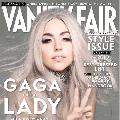คืนค่าการตั้งค่าทั้งหมด
คุณแน่ใจว่าต้องการคืนค่าการตั้งค่าทั้งหมด ?
ลำดับตอนที่ #16 : Nouns Countable/Uncountable Nouns - นามนับได้/ไม่ได้
.Countable Nouns ( นามนับได้ )
- เป็นนามที่สามารถแยกนับจำนวนหนึ่ง สอง สาม... ได้ ไม่ว่าจะมีหรือไม่มีรูปร่างก็ได้
มีรูปร่าง (สามารถสัมผัสได้ ) – เช่น dog, chair , tree, school, country, student, biscuit
ไม่มีรูปร่าง ( ไม่สามารถสัมผัสได้ ) - เช่น day , month, year, weekend, journey
กิจกรรม : job, assignment - มีทั้งรูปเอกพจน์และพหูพจน์
เอกพจน์: เช่น dog,country,day,year
พหูพจน์: เช่น dogs,countries,days,years - การใช้ นามนับได้เอกพจน์ ต้องนำหน้าด้วย determiners อย่างใดอย่างหนึ่ง เช่น
I want an orange. (ไม่ใช่ I want orange.)
Where is the bottle? ( ไม่ใช่ Where is bottle?)
Do you want this book? - การใช้นามนับได้พหูพจน์อาจจะนำหน้าด้วย articles หรือไม่ก็ได้ เช่น
I like to feed the birds. ( เฉพาะเจาะจง ต้องมี articles )
Cats are interesting pets. ( ไม่เฉพาะเจาะจง ไม่ต้องมี article )
I want those books on the table. ( those เป็น determiners )
2.Uncountable Nouns ( นามนับไม่ได้ )
- เป็นนามที่นับไม่ได้ เนื่องจากภาษาอังกฤษมองสิ่งนั้นในภาพรวมและคิดว่าไม่สามารถจะแยกเป็นส่วนได้ รวมทั้งความคิด การกระทำต่างๆที่เป็นรูปธรรม( abstract nouns ) ด้วย เช่น
Concrete: เช่น water, milk, butter, furniture, luggage, iron,equipment,clothing,garbage, junk
Abstract : เช่น anger, courage, satisfaction,happiness,knowledge
ชื่อภาษา: เช่น English,German,Spain
กีฬาต่างๆ :เช่น hockey, football, tennis
ชื่อวิชาต่างๆ: เช่น sociology, medicine, anthropology
กิจกรรมต่างๆ: swimming, eating
อื่นๆ : news, money,mail ,work,homework,gossip, education, weather, difficulty, information,feminism, optimism,machinery,information, research,traffic,scenery,breakfast, accomodation, advice, permission - มีรูปเอกพจน์ และเมื่อกล่าวถึงเป็นการทั่วๆไป หรือ ไม่ได้กล่าวถึงมาก่อน ไม่ต้องนำด้วย articles เช่น
I have bread and butter for breakfast every morning. ( ฉันกินขนมปังและเนยเป็นอาหารเช้าทุกวัน )
We cannot live without air and water. ( เราไม่สามารถมีชีวิตอยู่ได้โดยปราศจากอากาศและน้ำ )
Information is often valuable.( ข้อมูลข่าวสารมักจะมีคุณค่า )
Sunlight and water are usually required for plants to grow. ( แสงแดดและน้ำเป็นสิ่งจำเป็นสำหรับการเจริญเติบโตของพืช )
My favorite breakfast is cereal with fruit, milk, orange juice, and toast.
- Uncountable nouns ที่ทำหน้าทีประธานของประโยค จะต้องใช้ verb ด้วยหลักการเดียวกับคำนามเอกพจน์ เช่น
Butter is fattening. ( เนยทำให้อ้วน )
- ปกติจะมีรูปเป็นเอกพจน์ แต่ทำให้เป็นพหูพจน์ได้โดยบอกจำนวนตามภาชนะที่บรรจุ กลุ่ม น้ำหนัก และลักษณะนาม เช่น
two cups of water, three pieces of information, five patches of sunlight
three games of hockey, two lumps of sugar
I need two lumps of sugar for my coffee. ฉันกินกาแฟต้องใส่น้ำตาล 2 ก้อน
Two glasses of milk are enough. นมสองแก้วก็เพียงพอแล้ว ( ใช้ are เนื่องจาก glasses เป็นพหูพจน์ )
- เปรียบเทียบการใช้ articles ของคำนามทั้งสอง ( this,that,, these, those นำมารวมในที่นี้ เนื่องจากเป็นการชี้เฉพาะเจาะจงเช่นเดียวกับ the )
|
- เช่น
I want an orange. (ไม่ใช่ I want orange.)
Where is the bottle? ( ไม่ใช่ Where is bottle?)
Do you want this book?
I want those books up there. - เปรียบเทียบการใช้ Quantifiers ของคำนามทั้งสอง
|
เช่น
Countable singular :
Out of every five men only two were fit. มีผู้ชายสองในทุกๆห้าคนเท่านั้นที่สุขภาพแข็งแรง
I'd like one donut, please. ขอโดนัท 1 ชิ้นครับ
Countable plural:
Can I have some biscuits? ขอขนมปังกรอบหน่อยได้ไหมคะ
She has a lot of books. เธอมีหนังสือมากมาย
I have fewer pencils than you. ฉันมีดินสอน้อยกว่าคุณ
Uncountable:
Can I have some water. ขอน้ำหน่อยได้ไหมคะ
She has a lot of strength,and much is due to her upbringing. เธอเป็นคนที่เข้มแข็งซึ่งเป็นผลมาจากการเลี้ยงดู I
have less courage than you. ฉันมีความกล้าน้อยกว่าคุณ
3. คำนามที่เป็นได้ทั้ง Countable และ Uncountableคำนามบางคำสามารถเป็นได้ทั้งนามนับได้และนามนับไม่ได้ แล้วแต่การใช้ เช่น
|
|
ตัวอย่างเช่น
I like duck. ฉันชอบกินเนื้อเป็ด ( uncountable noun )
I like ducks. ฉันชอบเป็ด (ชอบสัตว์ที่เรียกว่าเป็ด ) ( countable noun )
Beer is a bitter drink. เบียร์เป็นเครื่องดื่มที่มีรสขม ( uncountable noun )
I think I ordered two beers. ฉันคิดว่าฉันสั่งเบียร์ไปสองแก้วนะ ( countable noun )
Life is full of surprise. ชีวิตเต็มไปด้วยสิ่งที่ทำให้ประหลาดใจ ( uncountable noun )
A cat has nine lives. แมวมีเก้าชีวิต ( countable noun )
Paper is made from wood. กระดาษทำจากไม้ ( uncountable noun )
She wrote three papers in one week. เธอเขียนเอกสารสามฉบับในหนึ่งสัปดาห์ ( countable noun )
Religion has been a powerful force in history. ศาสนาเป็นสิ่งที่ทรงอิทธิพลในประวัติศาสตร์ ( uncountable noun )
Many religions are practiced in the
4.คำนาม uncountable nouns ที่ไม่นิยมใช้เป็น countable ( ทำให้เป็น plural ) เช่น
| ||||||||||||||||


ความคิดเห็น